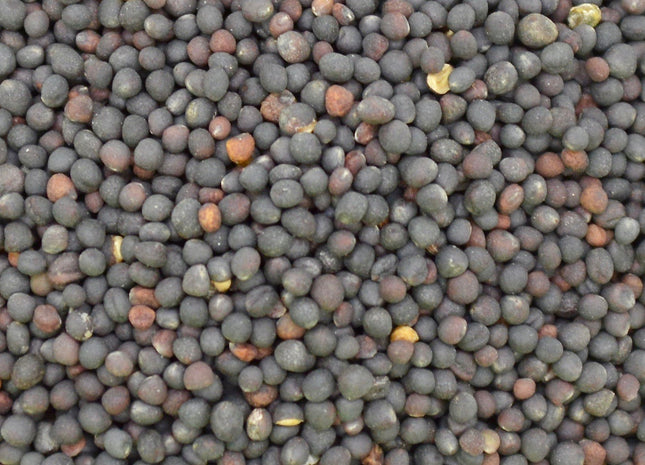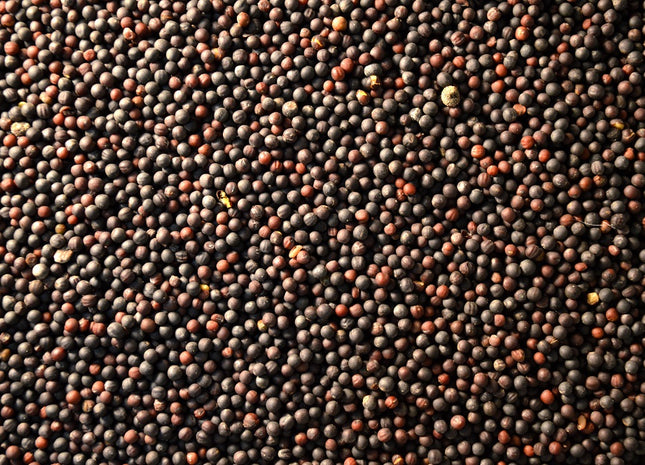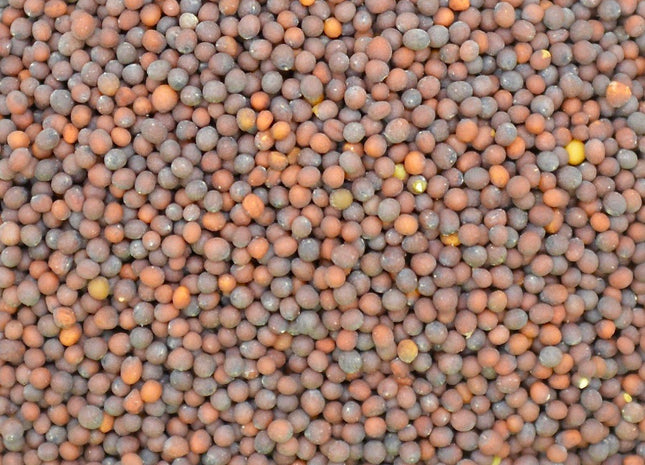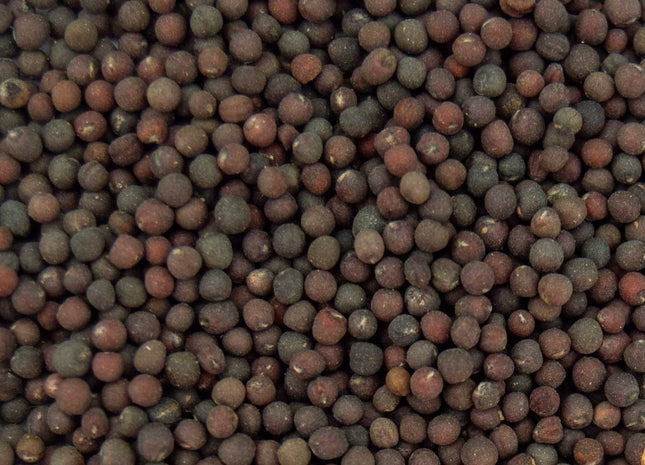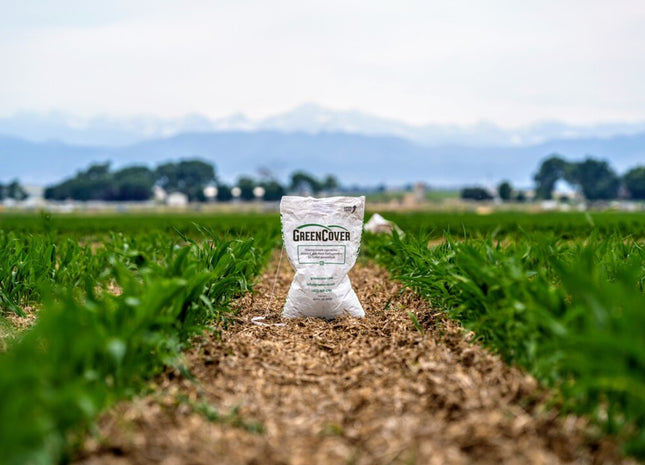Brassicas

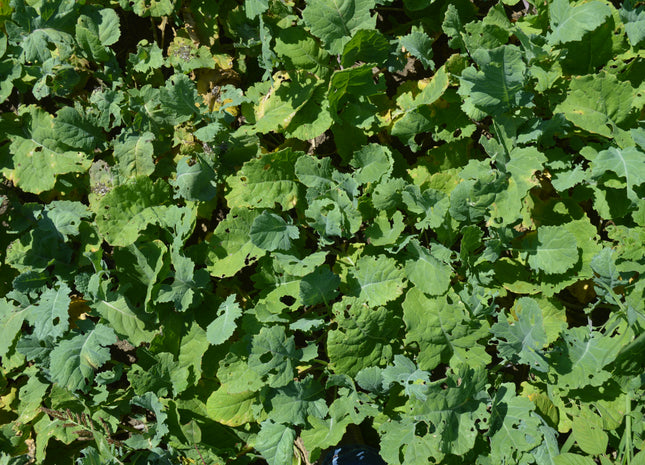
Rapeseed (Trophy)
Rapeseed belongs to the brassica family and is known for it's rapid, extremely high quality forage growth. Boasted for its nutrient scavenging abilities, rapeseed can accumulate large amounts of residual nitrogen. Rapeseed has an excellent, deep tap-root, ideal for breaking compaction. Of all the brassicas, rapeseed is one of the most cold tolerant, surviving temps down into the single digits. Rapeseed must vernalize to produce viable seed so if planted in the spring it will stay vegetative all season long.
from $1.10 per lb

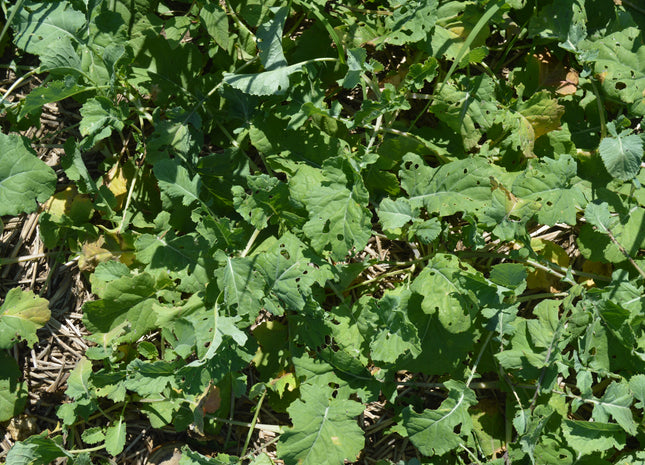
Kale (Bayou Kale-Rape Hybrid)
This hybrid plant is the product of blending two brassica parent plants: kale and forage rapeseed. This innovative hybrid boasts a unique combination of qualities, harnessing the quick establishment capabilities of forage rape and the exceptional winter resilience of kale. The resulting kale-rape hybrid stands as a superior source of high-protein forage, tailor-made for winter grazing. Its accelerated growth, robust vigor, and resilience to harsh winter conditions make it an ideal choice for livestock feed.
from $3.00 per lb

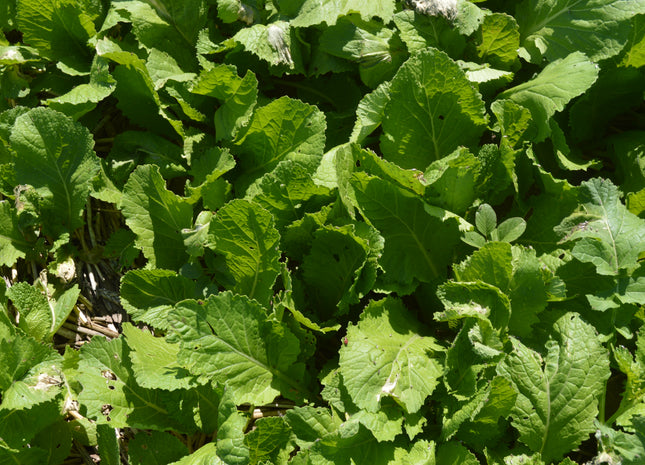
Florida Broadleaf Mustard
Florida broadleaf mustard is an excellent option for grazing mixes. With great palatability and high nutrient content, this mustard will keep your livestock coming back for more. Florida broadleaf mustard is also known for its ability to be utilized as a natural dewormer in grazing systems.
from $1.45 per lb

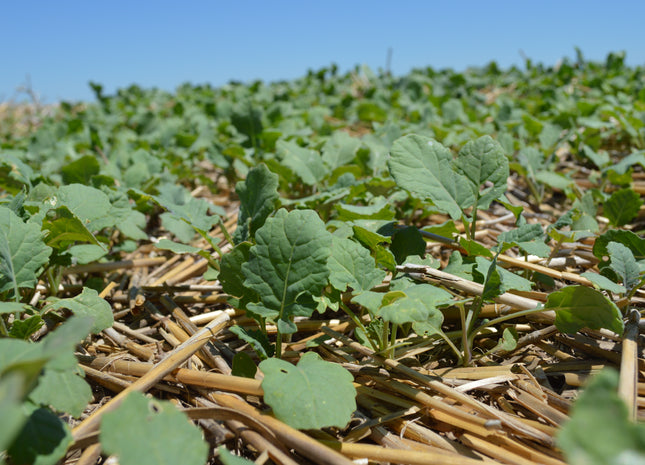
Siberian Kale
Siberian kale, like many other brassicas, are a great addition to a variety of mixes. The deep taproots allow the plant to access nutrients and water deep in the soil profile. The wide leaf and good palatability of kale works great in grazing mixes for livestock. A good cold tolerant brassica that can last deep into the fall for good fall and early winter grazing.
from $2.50 per lb

White Mustard (Action)
Action white mustard is a superior white mustard variety known for its excellent nematode reduction properties. This variety is very quick to establish and forms lots of biomass in its early stages of life. Action mustard is very stable due to it's extensive root system making it well suited to strip-till situations. This mustard has a low likelihood of flowering so it will stay in vegetative stage for a longer period of time making it ideal as a grazing mustard.
from $2.50 per lb

